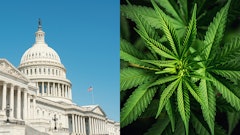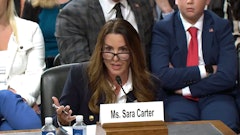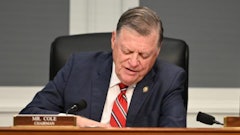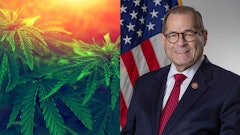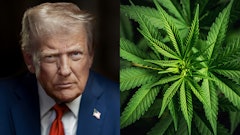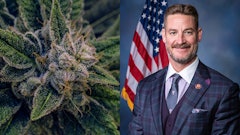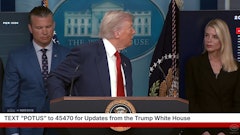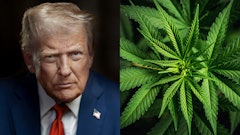
When news, first reported by Bloomberg, broke in late August that the U.S. Department of Health and Human Services sent a recommendation to the Drug Enforcement Administration to reclassify cannabis as a Schedule III drug within the Controlled Substances Act, debates ensued about what this would really mean for the already established state-legal cannabis industry and what might come next. Shane Pennington, partner at Porter Wright Morris & Arthur LLP and a well-known cannabis advocate and expert, weighs in on some of the biggest misconceptions about scheduling.
Noelle Skodzinski: What was your reaction to the news that the HHS was recommending that the DEA move cannabis to Schedule III?
Shane Pennington: This is the most significant development in cannabis law for sure in history at the federal level, without question. It’s one of the biggest events in the history of American drug law. It’s hard to overstate what a big deal it is.
NS: There are many discussions around what happens next.
SP: The ways we could sabotage this are, one, the treaty issue. DEA can overrule HHS’s recommendation if it says the [Single Convention on Narcotic Drugs, a 1961 international treaty] requires them to. The second way that it could get sabotaged is on judicial review. We’ll have some who say this is outrageous, it should be on Schedule I. And then you’ll have others who say this is outrageous, it shouldn’t be on any schedule. For this historic victory to sustain and to be meaningful, it’s going to have to survive judicial review and make its way through the courts.
NS: What are the chances you think the Single Convention on Narcotic Drugs is going to play a role in this?
SP: When DEA goes to write a proposed rule and a final rule, it will have no choice but to address the treaty. Because the treaty has always factored into cannabis scheduling in the past, and the agency just can’t ignore that, or it definitely will get dunked on judicial reviews. But ultimately, the fact that the president of the United States is behind this and so many Americans are behind it … and now HHS would support rescheduling despite the treaty, I expect that to carry the day.
NS: If the DEA should accept the recommendations and reclassify to Schedule III, there are people who have said they felt that this would be a move that would basically put cannabis into the hands of Big Pharma. What are your thoughts on that?
SP: If the pharmaceutical industry were interested, it could obviously throw its weight around now with cannabis as Schedule I, and it could with cannabis off the schedules, as well.
Some of the people who have shared that opinion have said that rescheduling is continuing to criminalize and descheduling is decriminalizing. They wanted it to be descheduled. Well, me too.
Removing [Internal Revenue Code Section] 280E is one of the major benefits of Schedule III. Tax fraud is a felony .... The IRS can put you in jail for violating 280E, and so there are criminal law implications for this … and because of the discretionary decisions that prosecutors and judges make in sentencing and charging that are going to change as a result of the classification change with cannabis. And I would just strongly advise people to think carefully before they criticize something that’s historic progress for a movement that we’ve all been working on so hard for so long … and letting the perfect become the enemy of the good.
NS: Is there anything else you’d like to mention?
SP: One thing I’m worried about is the backlash from potential prohibition states. The more dramatic the change at the federal level—if we were to deschedule, that would be great, as far as I’m concerned—but that would then arguably create a higher risk for a backlash in the prohibition states. And people need to remember that it’s the state law that really puts people in jail. Descheduling would not be utopia.












